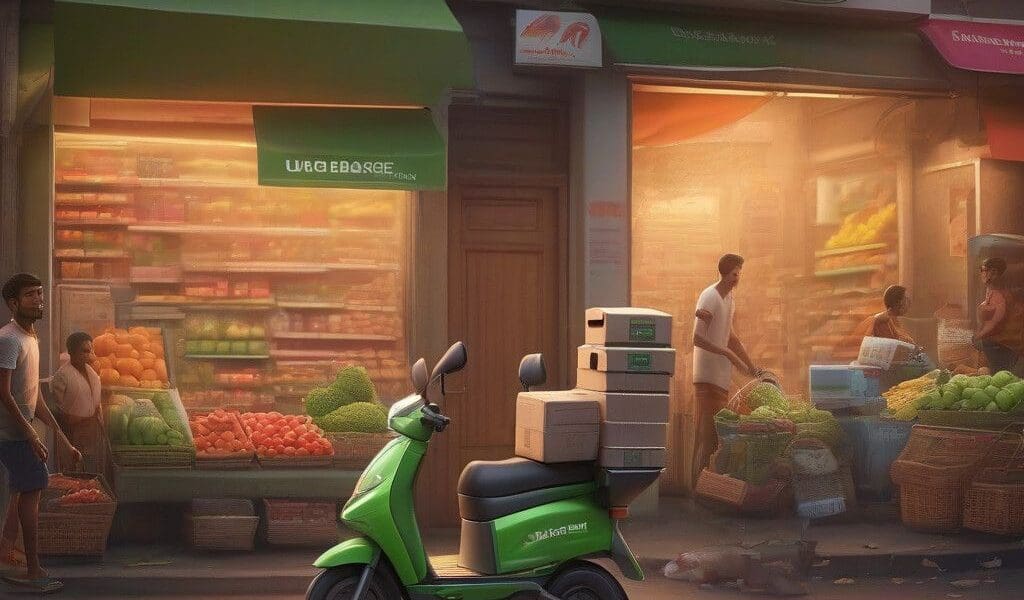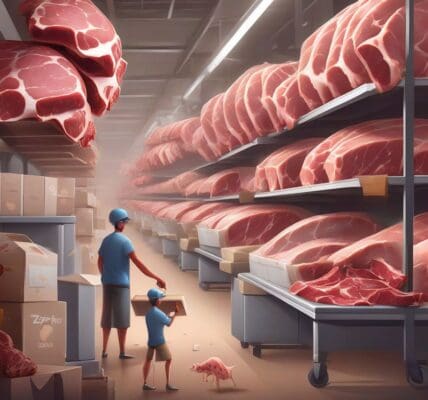In the rapidly changing landscape of online grocery shopping, Tata-owned BigBasket is set to pivot towards rapid delivery services, an area previously dominated by nimble competitors like Blinkit and Zepto. Once the leading e-grocer in India, BigBasket has seen increasing pressure from younger players in the quick commerce sector, compelling it to rethink its approach.
BigBasket’s decision to fully embrace quick commerce comes as the company’s cofounders, Hari Menon and Vipul Parekh, confirmed the transition of its BB Now service to focus exclusively on 10-30 minute delivery windows. This drastic shift demonstrates a recognition of changing consumer demands for speedier services. According to reports, more than 50% of BB Now’s current sales derive from its quick delivery vertical. This is a promising sign for a firm that has operated in the traditional grocery segment since its inception in 2011.
The push towards quick commerce isn’t a spontaneous decision; it is backed by strategic planning and significant investments. BigBasket aims for a target of $1.5 billion in sales this financial year, with up to $1 billion anticipated to come from its quick commerce initiative. This strategic maneuver reflects a broader trend within the grocery industry, where speed and convenience are becoming the cornerstones of customer attraction.
BigBasket’s strategy also involves the establishment of a network of around 500 to 600 dark stores, which are small warehouses positioned strategically within residential areas to facilitate rapid delivery. These dark stores will host a selective range of grocery items while still maintaining large warehouses that stock other expensive products. By having this dual warehouse strategy, BigBasket intends to cater to diverse customer needs while optimizing delivery logistics.
However, quick commerce does come with its challenges. Although it has gained traction in metropolitan areas, the question remains as to how well this model will translate to smaller cities. Additionally, profitability in the quick commerce sector is uncertain, as competitive pricing and heightened expectations are becoming the norm. The landscape is becoming increasingly competitive, with platforms like Zepto securing $1 billion in funding to expand operations and increase their inventory. These developments underscore the aggressive race for market share.
BigBasket is not just playing catch-up; it is actively crafting its narrative in this burgeoning segment. Their BB Now service currently carries around 10,000 SKUs (Stock Keeping Units), with plans to quadruple this number to meet demand. This calculation is based on previous market behavior, as competitors have demonstrated that a broader product offering often attracts more customers. For instance, Blinkit has stated that in some neighborhoods it offers up to 25,000 SKUs, emphasizing the growing assortment that customers expect.
Yet, it’s critical to note that while the quick commerce space is experiencing rapid growth—a forecast indicating a year-on-year surge of 100-110%—it remains a drag on overall profitability due to high operational costs. This leads to a delicate balancing act: companies must expand quickly to capture market share while also managing their profitability. As noted by a source familiar with the operational dynamics, ignoring this opportunity, given its rising adoption rates, is not a feasible option.
This paradigm shift away from traditional e-commerce grocery shopping is indicative of the larger evolution occurring across the retail space. Quick commerce blurs the lines between conventional retail and new, on-demand shopping behaviors. It necessitates ongoing investments and innovations from retailers, underscoring an evolving consumer landscape that prioritizes immediacy.
Competitive pressures are making companies rethink their strategies rapidly. For instance, Flipkart is also attempting to gain traction in this segment with its Minutes service, demonstrating that even established players recognize the need to invest in quick delivery infrastructure. It is crucial for retailers to not only think about how quickly they can deliver products but also how they can expand their product offerings to remain appealing to an ever-changing customer base.
In conclusion, BigBasket’s strategic pivot towards quick commerce indicates not only a response to competitive pressures but also an acknowledgment of shifting consumer expectations. As it retrains its focus and builds out its infrastructure, BigBasket may well shape the future of grocery delivery beyond metropolitan markets. The success of this initiative will hinge on its execution and capability to adapt to further changes in customer demand.












